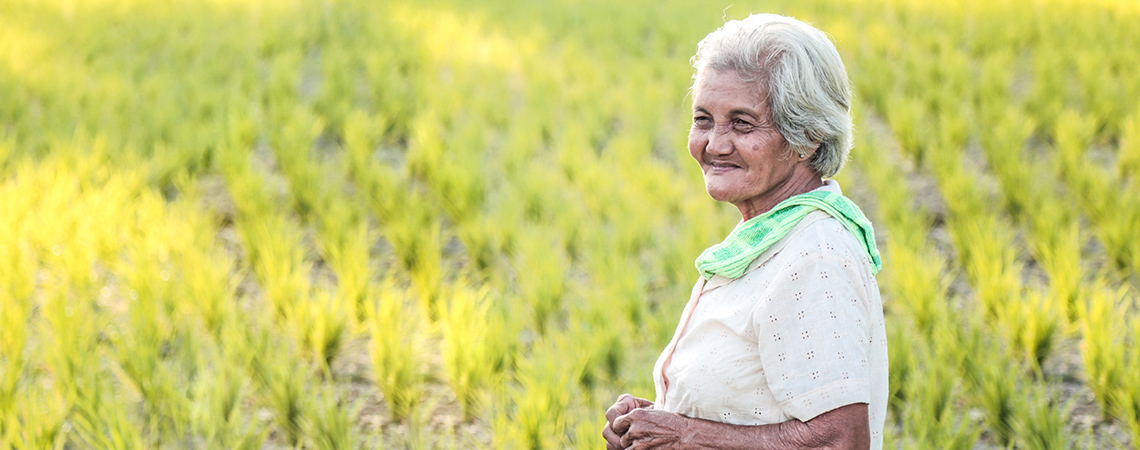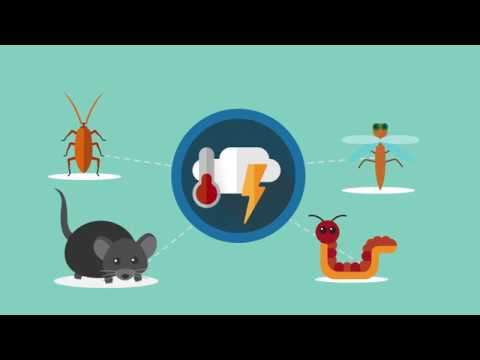
Photo:
As a result of increasingly unpredictable weather and increasing frequency of extreme events (particularly drought, excessive rains and/or flooding), farmers in Southern Philippines are losing income and assets including access to community infrastructure and facilities critical to their livelihoods. Baseline studies and Vulnerability and Adaptation Assessments conducted by CCAP in 2009 and 2010 show that extreme weather events have led to crop production losses ranging from 30 to 60% per annum. The data show that while flooding could be expected yearly based on historical trends, that over the past decade such events have started to come earlier and extend over longer periods. Events are also affecting larger portions of farmland, not only those in the low-lying areas. On the other end of the spectrum, drought events have also become an increasing risk factor, particularly over the past 5 years.
This project (2012-2018) aimed to reduce poverty through strengthening the resilience of vulnerable farming communities to climate risks in the North of Mindanao, including measures to promote greater productivity, sustainability and increased certainty. The project aimed to reduce vulnerability in development sectors and strengthen awareness and ownership of adaptation and climate risk reduction processes at local levels.
This project has now closed.
- District
- National Governments
- Non-Governmental Organizations
Farming communities in the North of Mindanao
- Department of Trade and Industry, Philippines
- Philippine Crop Insurance Corporation
- Department of Labor and Employment, Philippine
- International Labour Organisation
- United Nations Development Programme (UNDP)
- Global Environment Facility (GEF)
'From ‘the merchant of Venice’ to our time', UNDP, November 28 2018. Blog by UNDP Regional Technical Specialist Yusuke Taishi.
'New weather insurance aids farmers', Business World Economic Forum, July 27, 2016.
'Saving for a rainy day', UNDP, December 2, 2015. Blog by UNDP Regional Technical Specialist Yusuke Taishi.
'Philippine Crop Insurance Company and UNDP WIBI Mindanao Project Holds 1st Project Board Meeting', Philippine Crop Insurance Company, March 26, 2015.
'Department of Agriculture, UNDP and Philippine Crop Insurance Corporation Hold Regional Launching of WIBI Mindanao Project', Philippine Crop Insurance Corporation, June 1, 2015.
'Department of Agriculture-Philippine Crop Insurance Corporation Launch $1M Crop Insurance Project for Mindanao', Philippine Crop Insurance Company, November 27, 2014.
Outcome 1: Regulatory and fiscal incentive structures adjusted to stimulate private sector engagement in climate risk reduction for farming households.
- Output 1.1 Updated Policy Paper contributing towards the development of national incentives, standards and guidance to promote national uptake of climate risk transfer mechanisms for vulnerable farming communities, including private sector engagement .
- Output 1.2 Four case studies disseminated and 5 national and province level learning events conducted, to promote understanding and uptake of climate risk transfer mechanisms to 30 national institutions, 20 provincial authorities, and 25 private sector organisations.
- Output 1.3 Policy Guidelines released at Provincial Level on government and private sector role and engagement in risk reduction and transfer for vulnerable farming communities
Outcome 2: Innovative financial mechanisms developed and applied to strengthen climate resilience in the agriculture sector in North Mindanao
- Output 2.1 Pre-tested, customized Integrated Financing Package (IFP) delivered to at least 500 farming households (particularly female headed), to include credit and loans, training on savings, financial literacy and climate risk literacy)
- Output 2.2 Pre-tested,customized Weather Index Based Insurance (WIBI) delivered to at least 500 farming households (particularly female headed) to include low and excess rainfall cover for both corn and rice cultivation
- Output 2.3 Financial Assessment of the Integrated Financial Package undertaken by private sector establishing costs, distribution of risks, modes of engagement of public and private sectors and links to food production and security.
Outcome 3:Farmer organisations and other local stakeholders able to analysis climate risk, and develop and implement adaptation practices to enhance agricultural productivity and diversity livelihoods.
- Output 3.1Four community level Vulnerability and Adaptation Assessments and Farming Value Chain Analyses covering 4 municipalities, including baseline assessments of existing coping and risk reduction strategies, through 4 farmer associations/municipal federations.
- Output 3.2 Four Municipal Early Warning System Plans prepared along with Early warning devices installed in CC vulnerable barangays covering 4 municipalities
- Output 3.3 At least 4 barangayfarming associations each in 4 municipalities provided with training and orientation in green agricultural production practices, as well as demonstrations in green production systems.
See UNDP's Transparency Portal for reports.
Project Start:
Project Inception Workshop: will be held within the first 2 months of project start with those with assigned roles in the project organization structure, UNDP country office and where appropriate/feasible regional technical policy and programme advisors as well as other stakeholders. The Inception Workshop is crucial to building ownership for the project results and to plan the first year annual work plan.
Daily:
Day to day monitoring of implementation progress: will be the responsibility of the Project Manager, based on the project's Annual Work Plan and its indicators, with overall guidance from the Project Director. The Project Team will inform the UNDP-CO of any delays or difficulties faced during implementation so that the appropriate support or corrective measures can be adopted in a timely and remedial fashion.
Quarterly:
Project Progress Reports (PPR): quarterly reports will be assembled based on the information recorded and monitored in the UNDP Enhanced Results Based Management Platform. Risk analysis will be logged and regularly updated in ATLAS.
Annually:
Annual Project Review/Project Implementation Reports (APR/PIR): This key report is prepared to monitor progress made since project start and in particular for the previous reporting period (30 June to 1 July). The APR/PIR combines both UNDP and GEF reporting requirements.
Periodic Monitoring through Site Visits:
UNDP CO and the UNDP RCU will conduct visits to project sites based on the agreed schedule in the project's Inception Report/Annual Work Plan to assess first hand project progress. Other members of the Project Board may also join these visits. A Field Visit Report/BTOR will be prepared by the CO and UNDP RCU and will be circulated no less than one month after the visit to the project team and Project Board members.
Mid-Term of Project Cycle:
Mid-Term Evaluation: will determine progress being made toward the achievement of outcomes and will identify course correction if needed. It will focus on the effectiveness, efficiency and timeliness of project implementation; will highlight issues requiring decisions and actions; and will present initial lessons learned about project design, implementation and management. Findings of this review will be incorporated as recommendations for enhanced implementation during the final half of the project's term.
End of Project:
Final Evaluation: will take place three months prior to the final Project Board meeting and will be undertaken in accordance with UNDP and GEF guidance. The final evaluation will focus on the delivery of the project’s results as initially planned (and as corrected after the mid-term evaluation, if any such correction took place). The final evaluation will look at impact and sustainability of results, including the contribution to capacity development and the achievement of global environmental benefits/goals. The Terminal Evaluation should also provide recommendations for follow-up activities.
Project Terminal Report: This comprehensive report will summarize the results achieved (objectives, outcomes, outputs), lessons learned, problems met and areas where results may not have been achieved. It will also lie out recommendations for any further steps that may need to be taken to ensure sustainability and replicability of the project's results.
Learning and Knowledge Sharing:
Results from the project will be disseminated within and beyond the project intervention zone through existing information sharing networks and forums.
The project will identify and participate, as relevant and appropriate, in scientific, policy-based and/or any other networks, which may be of benefit to project implementation though lessons learned. The project will identify, analyze, and share lessons learned that might be beneficial in the design and implementation of similar future projects.
Establish a two-way flow of information between this project and other projects of a similar focus.
- UNDPYusuke TaishiRegional Technical Advisor

